It’s Saturday morning now in Phnom Penh. Last night I was trying to do an update here on the website but a convergence of hardware, software, and scheduling gremlins intervened. After opening and working on the computer twice and after re-installing some programs, I think I’m back on the air now.
Author: Charles Dittmeier
Money Laundering Needed

Cambodia has lots of good things about it. It also has more than its share of quirks, superstitions, anomalies, corruption, and downright ignorance. An example of the last is this $20 bill from the U.S. I tried to pay for some groceries in the big foreigner supermarket using this bill and they wouldn’t accept it because of the red corner. Any bill with a dirt spot or stain, a slight tear, a strange marking–No, we can’t accept that. The fact that the U.S. Government will accept it carries no weight. The majority of people just feel that somehow a marking invalidates a bill although their own currency is often in tatters with all sorts of marking, tears, tape, etc. In the defense of some of the non-accepting people, they know it is valid but they also know that THEY can’t pass it off to other customers so they will be stuck with it.
Persecution: It’s real…

Yesterday one of our Pakistani refugees here in Cambodia was able to go to Japan where he hopes to start a new life. Our St. Vincent de Paul Society in the English parish has been working with ten families who have fled religious persecution in Pakistan, and Saturday night we got two more newly arrived families. There is a limit to what we can do. In the past two weeks I have been asked for $46,000+ for refugee needs. We just don’t have that. The persecution is real, though, and people are fleeing for their lives.
Notable Quotes
To be centered in God alone does not mean to have no interests but God. It means to realize that all other interests are meant to bring us closer to God. They are not meant to take God’s place in our lives but to enable God’s spirit to enhance the meaning of everything else.
~ Sr. Joan Chittister
Plastic Rain Ponchos
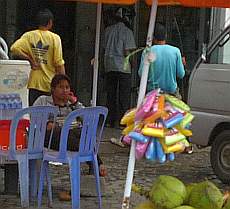
We’re in the rainy season now in Cambodia. It should stop about now but with climate change, the seasons have been extended later and later in recent years. One thing is sure: as soon as it looks like rain, the bunches of plastic rain ponchos sprout on poles and store fronts everywhere. Click here to see some of the poncho blossoms.
NIMBY
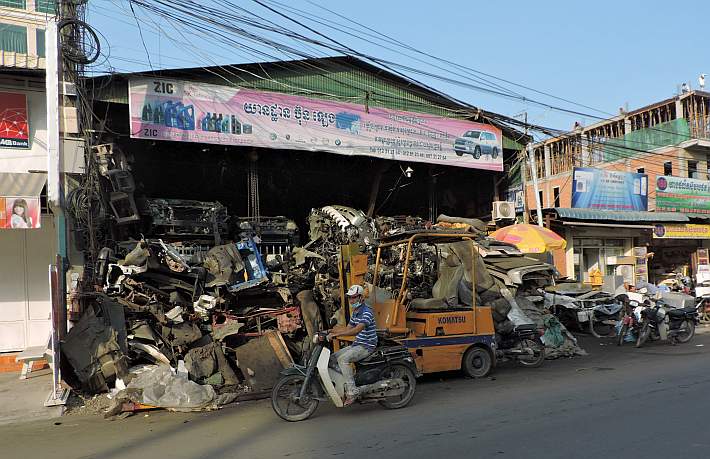
Not In My Back Yard….Nope, it’s right on the street. No hiding it behind the house. This is what you get when there are no zoning laws.
Pchum Ben 2019
Today was the first and most important day of the Pchum Ben festival in which Cambodian people honor their deceased relatives and ancestors. They all go to their home provinces for this so Phnom Penh becomes quite empty and peaceful. I had to go to a 6:15 AM mass across town and took a few photos coming and going.
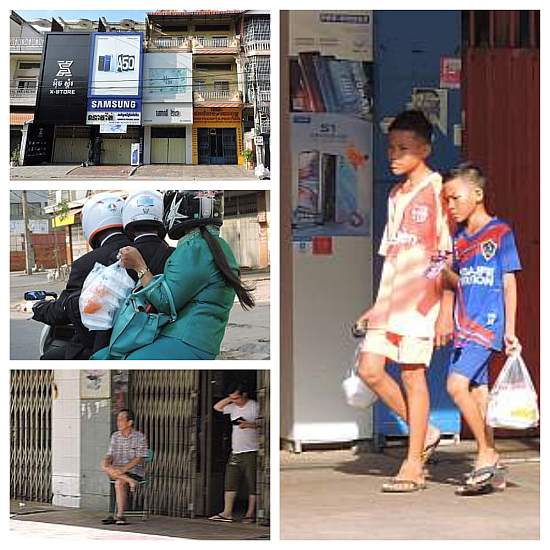
Shops normally bustling in the morning are all closed up. Three very well dressed adults go visiting on a motorcycle. One man celebrates the holiday sitting in front of his shop. Two boys return from buying some takeaway food for the family for breakfast.
Smuggled? No problem!
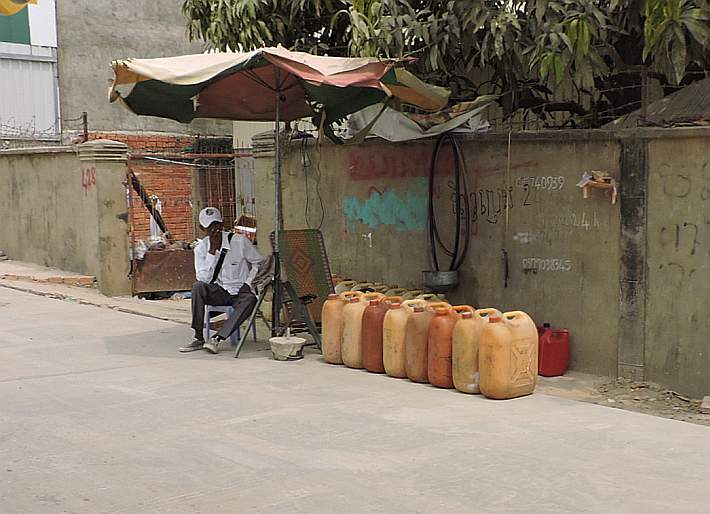
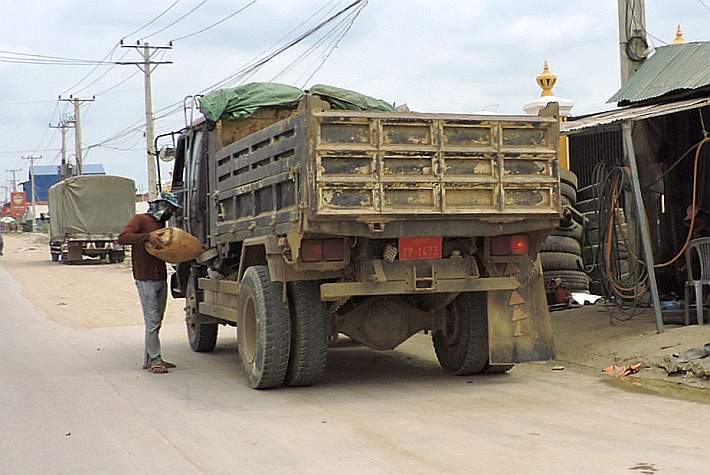
19th Century Banking

I had another nightmare experience with Cambodia Public Bank today.
One of my least favorite endeavors in Cambodia is going to a bank, any bank. It is an experience of inefficiency from the late 1800s, made even more ridiculous because now they use computers to perform so badly . To their credit, the branch manager did call me a few days ago and said that because I had not made a transaction with my account for almost a year, I would incur a $10 bank surcharge, but that I could come in this week still to make a deposit or withdrawal and avoid the fee.
What she didn’t acknowledge is that the reason I hadn’t made a transaction is that the bank canceled my ATM card without telling me and then said I had to pay $5 to get a new card, a debit card which I don’t want. Because it is such a pain to go into the bank and because now I don’t have an ATM card, I haven’t used the account.
Today I went in to make a withdrawal to avoid the surcharge. I arrived at 1445 and got a number ticket, #2016. There were 13-14 people sitting in chairs waiting to be called and that number stayed consistent the whole time I was in the bank. Behind the counter there were six bank staff. In front of the counter, being waited on, was one person. My number was called at 1510. It took an average of five minutes to deal with each customer at the counter, one by one.
I gave the teller my completed withdrawal form. She asked me to sign it on the back, where there is no place for a signature, even though I had signed it in the required place on the front. Then my withdrawal slip had to be stamp, approved, and authorized by three people! The teller then took out a $100 bill to give to me but first she ran it through a bill-counting machine. Not too surprisingly it registered that it had counted one $100 bill and it printed out a receipt to that effect. Then I had to sign that receipt, after which the teller gave me the $100 bill. It took 31 minutes to accomplish that.
Why do Cambodian banks have waiting rooms full of chairs? Why are they full of people waiting, waiting, waiting for one, two, three, or more trips to the counter? Why can’t a person go in for a deposit or withdrawal and be out in five minutes like in the US? Why do customers need to sit down if they are not negotiating a loan?
Cambodia’s Economy
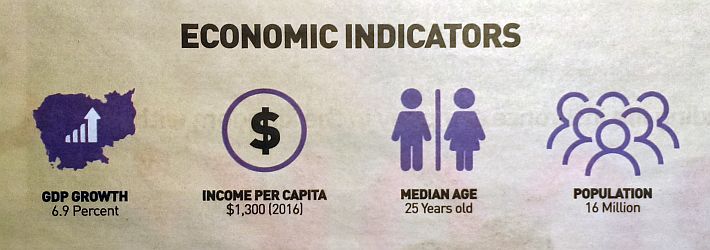
These are some economic indicators that were published recently. Note the 6.9% economic growth. Cambodia has averaged more than that for the past decade. Unfortunately the money does not flow freely through the economy but ends up in the pockets of the government officials and business tycoons. Notable also is the low median age and the low average income.